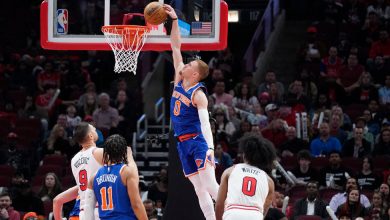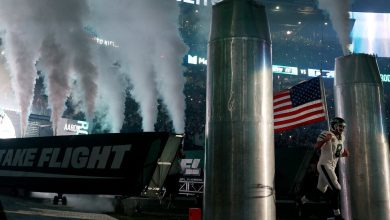Is the Arizona Cardinals’ Title Drought the Result of a Curse?

Jay Zimner is by most measures a rational man. Zimner, a 44-year-old lawyer, leads a thriving real estate and litigation practice in New York City even as he comanages a Manhattan chapter of BNI, the networking organization.
But Zimner, a married father of two and a Phoenix transplant, has also been a devoted fan of the Arizona Cardinals since that N.F.L. franchise moved to the Valley of the Sun in 1988. This largely explains an email Zimner recently sent to the online mailbag of his favorite Cardinals beat writer.
“I wonder how many of us fans are aware of the curse that has karmically jinxed this franchise,” Zimner asked, before offering suggestions for how the hex might be lifted. “Once and for all we can rid our franchise of this curse by returning the 1925 championship to Pottsville, PA.”
Readers would be forgiven if their response to the above was, “Huh?” It is a measure of the Cardinals’ distinct ignominy that even the team’s bad mojo barely registers. Ask an American sports fan to fill in the blank after “Curse of…” and you’d most likely hear “… the Billy Goat” (Chicago Cubs) or “the Bambino” (Boston Red Sox).
But the Cardinals own the longest championship drought in major American sports: It has been 74 years since the team won its last N.F.L. title, and its performance in the interim has been, with rare exceptions, less than uplifting.
2021 N.F.L. Season News and Analysis
- Playoff Predictions: Our picks for the wild-card round.
- The Reason Every Playoff Team Will Lose: All but one remaining team have a fatal flaw.
- The Buccaneers’ Offense Works Because of This Man (and Tom Brady): Byron Leftwich has customized gameplans to a hodgepodge of stars, injury replacements and holdovers.
- The N.F.L Coaches Fired So Far in 2022: The Texans’ firing of David Culley leaves the league with just one head coach who is Black.
Heartbreak, in fact, is a Cardinals specialty. For some longtime fans, the team’s upcoming wild-card round contest against the Los Angeles Rams — the first postseason N.F.L. Monday night game — is just another opportunity to find a different way to lose. At that task, the Cardinals are exceptional, having lost 777 times, more than any other N.F.L. team (against 577 wins and 41 ties).
To be sure, that inglorious distinction has something to do with longevity. Among charter members of the league, only the Green Bay Packers (1,401) and Chicago Bears (1,435) have played more games. Still, the Cardinals have the third-lowest winning percentage (.426) among active N.F.L. teams, behind the Jacksonville Jaguars (.416) and Tampa Bay Buccaneers (.402).
Fittingly, the curse that Zimner referenced involves a Cardinals loss. The year was 1925, the N.F.L.’s sixth season. The fledgling league’s rules and processes, charitably described as works in progress, offered no official method for determining a champion. So in early December, when the 9-2 Pottsville Maroons traveled from deep in the heart of Pennsylvania coal country to play the 9-1-1 Chicago Cardinals, it was generally regarded as a title game.
Pottsville, as recounted in David Fleming’s rollicking 2007 book “Breaker Boys,” featured a roster of colorful players, including college stars trying to earn some money and local coal miners looking to earn a little extra. (The miner group included a man some regard as the toughest player in football history, running back Tony Latone.) The Maroons, one of the first N.F.L. teams to institute regular practices, beat the Cardinals, 21-7.
Shortly thereafter, the presumptive champs from Pottsville agreed to play an exhibition in Philadelphia against an all-star team of college players. Pottsville won that one too, 9-7, in an upset that helped legitimize the N.F.L. Unfortunately for the Maroons, it also cost them their title because the local N.F.L. team, the Frankford Yellow Jackets, claimed that the exhibition infringed on their territorial rights. (Pottsville had humiliated the Yellow Jackets, 49-0, in the regular season.)
Although the league’s territorial rights were little more than a gentlemen’s agreement — and despite Pottsville having received an official approval to play the game — the N.F.L. suspended the Maroons. But when the league offered to name the Cardinals the champions, Chicago admirably declined the “honor.” For the next few years, ownership of the 1925 N.F.L. title remained a little fuzzy. Then the Bidwill family bought the Cardinals in 1932 and promptly claimed it.
The Cardinals declined to comment for this article.
Three years after their victory was stolen, the Maroons moved to Boston; the team folded in 1929. In 1963, though, Maroons fans petitioned the N.F.L. to give them their title back. By then, the Cardinals had moved to St. Louis, and president Charles Bidwill Jr. (grandfather of the current team owner Michael) publicly — and dismissively — rejected the idea.
Forty years passed before the issue was raised again. At the 2003 owners meeting in Philadelphia, it was proposed that the two teams share the title, a solution Paul Tagliabue, the commissioner at the time, was said to support. Again, the Cardinals reportedly squashed the initiative, ignoring a lobbying group that included Pittsburgh Steelers owner Dan Rooney, Philadelphia Eagles owner Jeffrey Lurie, Gov. Ed Rendell of Pennsylvania, and Mayor John D.W. Reiley of Pottsville. Despite a few minor fist-raisings along the way — a Pennsylvania legislative resolution here, an online petition there — there has been no meaningful progress since.
As for the jinx, it is difficult to determine exactly when the Curse of the Maroons befell the Cardinals and exactly who put it there. “It probably started in the early 1960s,” said Fleming, a senior writer for ESPN, who noted that Bidwill had dismissed the title claim just as the Pro Football Hall of Fame, which opened in 1963, was asking former Maroons for memorabilia. “Here was this important team from this little town and nobody in the football establishment seemed to care about righting the wrong. It was hard for Maroons supporters to understand.”
Less hard to understand is why this or any sports curse gets any traction at all. It basically boils down to a collection of cognitive biases, including apophenia (the tendency to see connections between unrelated phenomenon), fundamental attribution error (the tendency to blame others’ shortcomings on something intrinsic to their character or actions), and loss aversion.
“As a rule, losses hurt more than wins feel good,” explains Stuart Vyse, a psychologist and author of “Superstition: A Very Short Introduction.” “So our efforts to find causes for losing that are outside the obvious — bad coaching, bad playing — are more robust.”
Some people land on bad luck, others land on a curse. “Most people know curses aren’t real,” Vyse says. “But the idea can still ease a painful reality.”
That’s certainly the case for Zimner. “The feeling that somehow my support or energy affects my team’s fortunes, that’s both crazy and beautiful,” he said, “but if your team keeps losing in soul-crushing ways it’s also painful. A ‘curse’ is comforting because it lets you think, ‘Hey, maybe it’s not them/us after all.’ And maybe I’m not such a loser for never giving up on them.”



